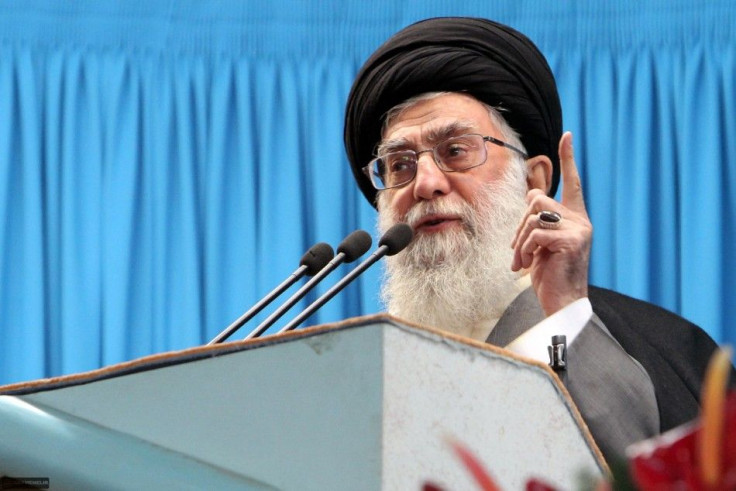Iran Crisis: Obama Vows to Protect Israel

U.S. President Barack Obama has vowed that his country will do everything it can to protect long-time ally Israel by preventing Iran from gaining nuclear weapons.
However, the president stopped short of openly calling for a pre-emptive attack on Iran.
Obama told NBC News over the weekend that Washington is cooperating closely with Israel over the Iranian nuclear issue, but added that Israel has not decided on a specific course of action regarding the Teheran threat, refuting speculation that the Jewish state plans to attack Iran as soon as this spring.
I've been very clear -- we're going to do everything we can to prevent Iran from getting a nuclear weapon and creating a nuclear arms race in a volatile region, Obama told NBC on Sunday.
My number one priority continues to be the security of the United States. But also, the security of Israel. And we're going to make sure that we work in lockstep, as we proceed to try to solve this -- hopefully diplomatically. [But] I don't think Israel has made a decision on what they need to do.
As the crisis gathers steam, while Obama insisted that he seeks to resolve the imbroglio with Iran diplomatically – he warned all options would be considered, suggesting a possible military strike at some point in the future if Iran remains intransigent.
Obama emphasized that the U.S. and Israel have closer military and intelligence consultation... than we've ever had. We are prepared to exercise these options should they arise.”
He also said that the U.S. has a very good estimate of when Iran might complete construction of a nuclear weapon.
Do we know all of the dynamics inside of Iran? Absolutely not,'' Obama said. Iran itself is a lot more divided now than it was. Knowing who is making decisions at any given time inside of Iran is tough.''
The president, however, denied speculation that the Iran might be targeting American facilities.
We don't see any evidence they have those intentions or capabilities,” he declared.
While Iranian officials have long claimed that its nuclear program is designed for peaceful purposes, the US, Israel and some western European nations believe that the Islamic Republic is developing atomic weapons.
Moreover, Iran has repeatedly threatened Israel with destruction.
A report late last year by the United Nation’s nuclear watchdog, the International Atomic Energy Agency (IAEA), strongly indicated Iran is seeking to build nuclear weapons.
Since that report, Washington and European capitals have tightened the economic screws on Iran by imposing even harsher economic sanctions against Teheran.
Obama said he believes the sanctions are hurting Iran.
We have mobilized the international community, in a way that is unprecedented. They [Iranians] are feeling the pinch. They are feeling the pressure, he said.
However, the president cautioned that a pre-emptive strike on Iran would have negative repercussions.
Any kind of additional military activity inside the [Persian] Gulf [would be] disruptive,” he said.
“And [it] has a big effect on us. It can affect oil prices. We've still got troops in Afghanistan, which borders Iran. And so our preferred solution here is diplomatic.
One of the U.S.’ most important allies in the Middle East, Turkey, has urged a peaceful resolution to the Iranian crisis.
Turkish Foreign Minister Ahmet Davutoglu warned that an attack on Iran would be disastrous.
If there is strong political will and mutual confidence being established, this issue could be resolved in a few days, he said at a security conference in Munich, Germany.
The technical disputes are not so big. The problem is mutual confidence and strong political will.
Davutoglu added: A military option will create a disaster in our region. So before that disaster, everybody must be serious in negotiations. We hope soon both sides will meet again but this time there will be a complete result.
Similarly, Qatar also warned against a strike upon Iran.
Qatari Deputy Foreign Minister Khalid Mohamed al-Attiyah told reporters: I believe that with our allies and friends in the West we should open a serious dialogue with the Iranians to get out of this dilemma. This is what we feel in our region.”
Separately, Israeli Foreign Minister Avigdor Lieberman is expected to visit Washington on Monday, while Prime Minister Benjamin Netanyahu plans to visit the United States in early March.
© Copyright IBTimes 2024. All rights reserved.











